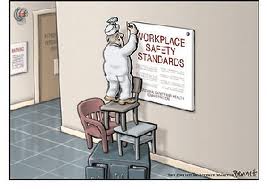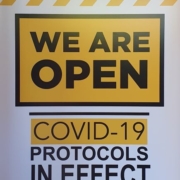Test Your Knowledge – The Privacy Act 1993
The purpose of the Privacy Act 1993 is to promote and protect individual privacy – in particular to establish principles on: collection, use, and disclosure of information relating to individuals and access by individuals to information held about them.
Below are some common misconceptions and facts about your Privacy, rights and requirements courtesy of the Privacy Commissioner NZ.
Q 1. True or False: if your profile on a social network is set so that only your friends can see it, your profile is completely private.
Click here to find the answer
Q 2. True or False: You always have control over the pictures you post online.
Click here to find the answer
Q 3. The Privacy Act protects your personal information. Personal information consists of:
A. Your name, age, weight, height, home address and phone number.
B. Your blood type, DNA code, fingerprints and medical records.
C. Your education, purchases and spending habits.
D. All of the above.
Click here to find the answer
Q 4. It’s really easy to share pictures and stories with your friends on social networking sites. When you’re posting items you should:
A. Post everything that you think is funny and interesting – your friends will love these things!
B. Don’t post anything – it’s a creepy world out there.
C. Think first. Would you be comfortable if your parents, teachers or bosses saw what you are posting?
Click here to find the answer
Q 5. When you’re surfing online, websites can collect this information about you:
A. My personal preferences.
B. My approximate location.
C. The software I’m using.
D. All of the above.
Click here to find the answer
Q 6. You’re buying an item of clothing at the mall. As you’re about to pay for them, the shop assistant asks for your address and phone number. You:
A. Give it to him. The shop probably needs it in case I want to return the jeans.
B. Ask why he needs it. Once you know what the shop plans to do with your information, you can decide whether to hand it over.
C. Refuse. It’s none of their business!
Click here to find the answser
Q 7. Under the law, you have a right to complain if:
A. You think your personal information was improperly collected, used or disclosed?
B. You run into difficulties trying to get your personal information from an organisation, or to get your personal information corrected when it’s wrong?
C. All of the above.
Click here to find the answer
Q 8. Can an employer contact a job applicant’s past employer for a reference?
Click here to find the answer
Other Privacy breaches/concerns that Chapman ER have seen of late are:
Q 9. Birthdays. Is it OK to email ‘All staff’ notifying them of an employee’s birthday so they can congratulate them or buy them a card or present?
A. It’s only OK if it’s a special birthday for example a 40th or 60th
B. It’s only OK to send to the employee’s immediate team
C. It’s only OK if the employee gives you permission
D. It’s never OK
E. It’s always OK
Click here to find the answer
Q 10. Resignations. Is it OK to send an email to all staff notifying them of the resignation of an employee and communicating where the staff member will be moving to or what they will be doing next?
A. Only OK if the staff member agrees to the communication
B. It’s always OK. The role is being vacated, the employee is leaving and the staff have a right to know.
C. It’s never OK and the staff will find out soon enough when the job is advertised.
Click here to find the answer
Q 11. Work emails. Can you monitor any information on your company’s computer system i.e. Information accessed and saved on your employee’s desk top?
A. No that is an invasion of your employee’s privacy.
B. You can only monitor work related information.
C. You can only monitor information on an employee’s computer if an alarm alerts you to pornography or inappropriate material being accessed
D. It is your system and you can monitor and access any information stored or accessed on an employee’s desktop, laptop, or other device
Click here to find the answer
Q 12. Which answer applies to information gathered from an employee during a workplace investigation e.g. Health & Safety, Bullying:
A. The employee can withdraw their statement at any time through the process
B. The employee cannot withdraw their statement once communicated
C. The employee can correct the information provided if it is recorded inaccurately
D. The employee cannot refuse to participate in an investigation process
Click here to find the answer










